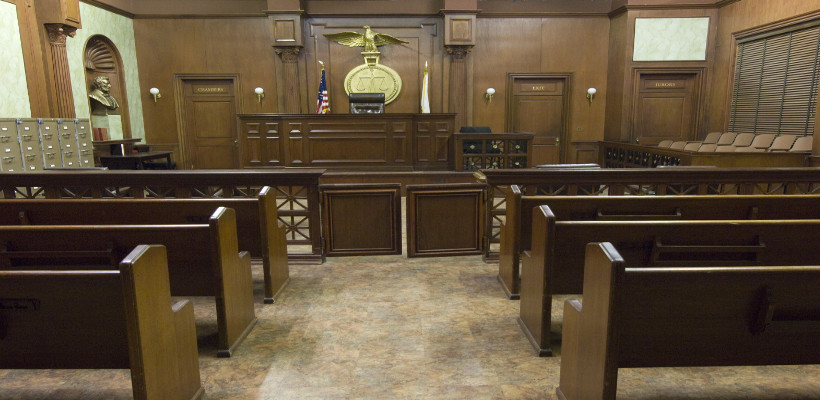
While attending court to get appointed as an executor may seem intimidating, understanding the courtroom layout, rules and procedures can help ease some anxiety. Some Texas counties allow the will to be admitted through attorney testimony; however, many counties require the executor to come to court to testify. Your probate attorney will be your guide on the date of hearing, but most find that a prior understanding of the courtroom layout, court personnel and the process that allows the court to admit the will and appoint an executor is helpful.
The Courtroom
The area where the judge sits is referred to as the bench and is situated front and center, overseeing the entire courtroom. The presiding judge is easily distinguished by a black robe. Many times in large counties, an associate judge will preside over the uncontested probate docket which includes simple will prove ups.
A court clerk or court coordinator sits next to the judge and is responsible for managing the docket and processing all case documentation. Although an employee of the county clerk’s office, the clerk/coordinator is responsible for executing all duties delegated by the presiding judge. Usually, there is no court reporter present for prove ups of uncontested wills.
As a law enforcement officer, bailiffs are responsible for keeping order in the courtroom. At least one bailiff is in the courtroom at all times and is the one who announces, “all rise” followed by an introduction of the presiding judge.
You may notice that upon entering the courtroom, there is a short wall (commonly referred to as the bar) that divides the courtroom. Only licensed attorneys and court personnel may sit between the bar and the judge. All others must wait behind the bar until called as a witness. Some attorneys choose to sit at the longer table in front of the bar until their case is called and some choose to sit with their clients behind the bar (the galley). You may also notice a jury box with 12 seats that will remain empty during days when no trials are taking place.
Procedure
The judge will begin by calling first case (e.g. The Estate of William Smith) on the docket. Your attorney may respond by announcing ready and motion you to approach the bench to testify in front of the judge. You may then see the judge and attorney exchange some documents including the original will and the order for the judge to sign. The judge will then ask you to raise your right hand and take an oath prior to testifying.
Following being sworn in, your attorney will proceed to ask you several questions that lay precedent to allow the will to be admitted and permit you to be appointed as executor. Some things that must be asked relate to the witnesses’ knowledge of decedent’s date of death, county of death, whether four years have elapsed since death, whether any children were born after the will was made, and whether decedent was previously divorced.
Upon hearing the testimony, the judge will admit the will to probate and appoint you as executor. The following is an example of language that may be used by the judge when admitting a will and appointing an executor.
“Based on the testimony I have heard today, I admit the will and hereby appoint John Smith to serve as independent executor of the deceased’s estate, without bond and waive appraisements.”
To conclude, the attorney and executor will step to the side and sign a proof of death and facts, the order, and the oath in the presence of the court clerk.
The courtroom setting and process is unfamiliar to many and may be especially intimidating to those visiting for the first time. Having a general understanding of the courtroom layout and process should help relieve some of the stress associated with appearing in court.
All information provided on Silblawfirm.com (hereinafter "website") is provided for informational purposes only, and is not intended to be used for legal advice. Users of this website should not take any actions or refrain from taking any actions based upon content or information on this website. Users of this site should contact a licensed Texas attorney for a full and complete review of their legal issues.
